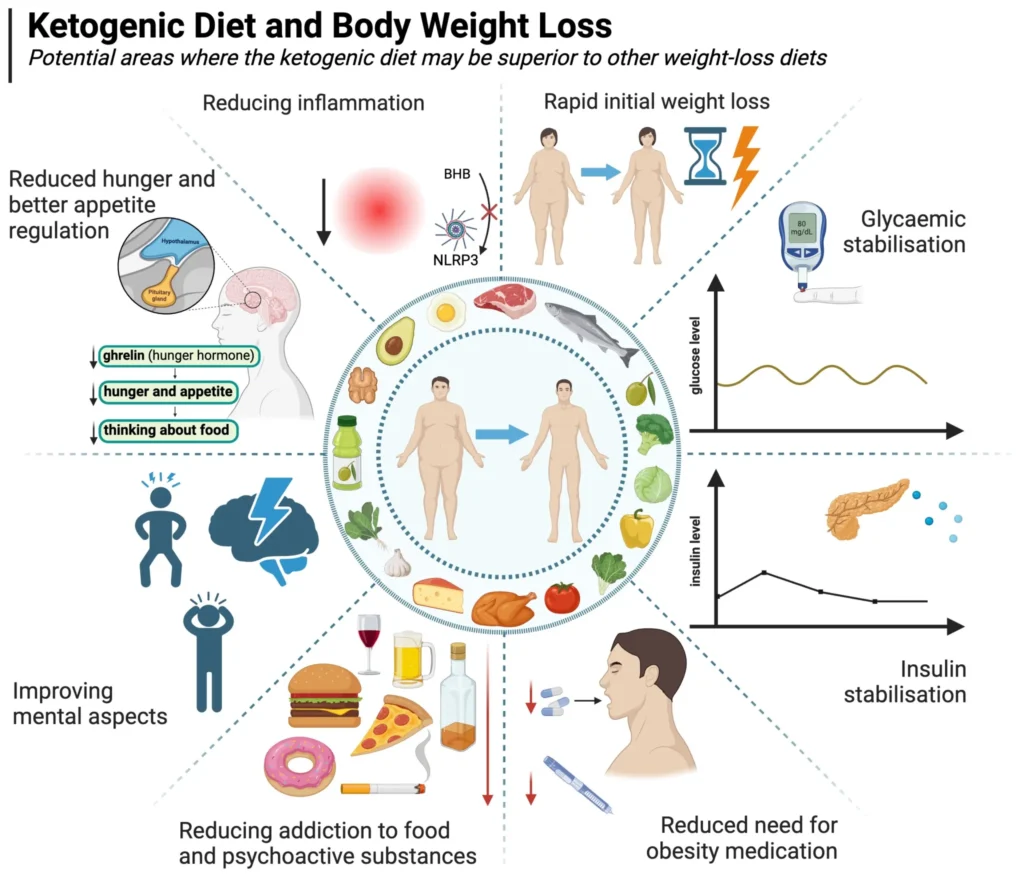The ketogenic diet, or keto diet, has gained popularity in recent years for its potential health benefits, including weight loss, improved energy levels, and better mental clarity. One of the lesser-known benefits of the keto diet is its ability to sharpen focus and improve memory. In this article, we will explore how the keto diet can enhance cognitive function and provide tips for optimizing these benefits.
What is the keto diet?
The keto diet is a high-fat, low-carbohydrate diet that has been used for centuries to treat epilepsy in children. The diet works by putting the body into a state of ketosis, where it burns fat for fuel instead of carbohydrates. This shift in metabolism can lead to weight loss, increased energy levels, and improved mental clarity.
How Does the keto diet Improve Focus and Memory?
There are several ways in which the keto diet can enhance cognitive function. One of the key mechanisms is through the production of ketones, which are molecules produced by the liver when the body is in ketosis. Ketones can cross the blood-brain barrier and provide an alternative source of energy for the brain, which can improve focus and mental clarity.
Additionally, the keto diet has been shown to reduce inflammation in the body, which can have a positive impact on cognitive function. Chronic inflammation has been linked to cognitive decline and conditions such as Alzheimer’s disease, so reducing inflammation through the keto diet can help protect the brain and improve memory.
The keto diet also supports the production of brain-derived neurotrophic factor (BDNF), a protein that plays a key role in the formation of new neurons and synapses in the brain. By increasing levels of BDNF, the keto diet can support brain health and improve memory.
Tips for Optimizing Focus and Memory on the keto diet
While the keto diet can provide benefits for cognitive function, there are some additional steps you can take to optimize these benefits:
1. Stay Hydrated: Dehydration can impair cognitive function, so be sure to drink plenty of water throughout the day.
2. Get Plenty of Sleep: Adequate sleep is essential for cognitive function, so aim for 7-9 hours of quality sleep each night.
3. Exercise Regularly: Physical activity has been shown to improve cognitive function, so incorporate regular exercise into your routine.
4. Include Brain-Boosting Foods: Certain foods, such as fatty fish, nuts, and avocados, can support brain health and improve cognitive function.
5. Practice Mindfulness: Stress can impair cognitive function, so practice mindfulness techniques such as meditation or deep breathing to reduce stress levels.
FAQs
Q: Can the keto diet help with conditions such as ADHD or Alzheimer’s disease?
A: While more research is needed, some studies have suggested that the keto diet may have potential benefits for conditions such as ADHD and Alzheimer’s disease. The diet’s ability to reduce inflammation and support brain health could make it a promising option for these conditions.
Q: Are there any potential side effects of the keto diet on cognitive function?
A: Some people may experience a period of adjustment when starting the keto diet, known as the “keto flu.” This can include symptoms such as fatigue, brain fog, and irritability, which may temporarily impair cognitive function. However, these symptoms typically improve as the body adapts to ketosis.
Q: How long does it take to see improvements in focus and memory on the keto diet?
A: Individual results may vary, but some people report noticing improvements in focus and memory within a few weeks of starting the keto diet. Consistency is key, so be patient and give your body time to adapt to ketosis.
In conclusion, the keto diet can offer significant benefits for cognitive function, including sharper focus and improved memory. By following the tips outlined in this article and incorporating brain-boosting foods into your diet, you can optimize these benefits and support overall brain health. If you are considering trying the keto diet for cognitive enhancement, be sure to consult with a healthcare provider or nutritionist to ensure it is a safe and appropriate option for you.
